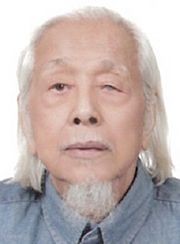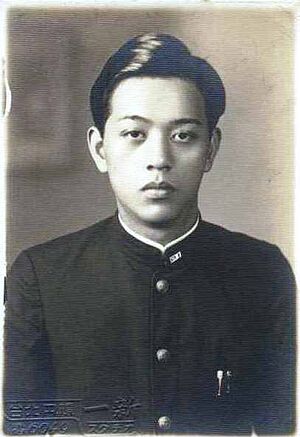Su Beng facts for kids
Quick facts for kids
Sú Bêng
|
|||||||||||||||||||
|---|---|---|---|---|---|---|---|---|---|---|---|---|---|---|---|---|---|---|---|
|
史明
|
|||||||||||||||||||
 |
|||||||||||||||||||
| Senior Advisor to the President | |||||||||||||||||||
| In office November 9, 2016 – September 20, 2019 |
|||||||||||||||||||
| President | Tsai Ing-wen | ||||||||||||||||||
| Vice President | Chen Chien-jen | ||||||||||||||||||
| Personal details | |||||||||||||||||||
| Born |
林朝暉 Lîm Tiâu-hui
November 9, 1918 Shirin Town, Taihoku Prefecture, Japanese Taiwan |
||||||||||||||||||
| Died | September 20, 2019 (aged 100) Taipei Medical University Hospital, Taipei, Taiwan |
||||||||||||||||||
| Nationality |
|
||||||||||||||||||
| Political party | Independent (1949–2019) | ||||||||||||||||||
| Other political affiliations |
Communist Party of China (1943–1949) | ||||||||||||||||||
| Alma mater | Waseda University | ||||||||||||||||||
| Website | https://www.facebook.com/su.beng.3 | ||||||||||||||||||
| Nickname | Ozisan (おじさん) | ||||||||||||||||||
| Chinese name | |||||||||||||||||||
| Traditional Chinese | 史明 | ||||||||||||||||||
|
|||||||||||||||||||
Su Beng (born November 9, 1918 – died September 20, 2019) was an important political activist from Taiwan. His birth name was Lin Chao-hui. Later, he became known as Shih Chao-hui. He was a strong supporter of the Taiwan independence movement, which means he believed Taiwan should be its own country.
Contents
Early Life and Time Away from Home

Su Beng was born on November 9, 1918. This was in Shirin Town, which is now the Shilin District of Taipei. At that time, Taiwan was under Japanese rule. When he was 11, he started using his mother's family name, Shih.
In 1942, he finished his studies at Waseda University in Tokyo, Japan. He studied political science and economics. After graduating, he moved to mainland China. There, he worked with a group called the Chinese Communists for several years.
In 1949, he left China and returned to Taiwan. This was around the time when Chinese Nationalist soldiers were also moving to Taiwan. In 1950, Su Beng started a group called the Taiwan Independence Armed Corps. This group aimed to make Taiwan independent.
In 1951, weapons belonging to his group were found. Su Beng had to go into hiding to avoid being caught.
Fleeing to Japan
After several months of hiding, Su Beng managed to escape to Japan in May 1952. He traveled secretly on a boat that was carrying bananas. When he arrived in Japan, he was held for four months because he entered the country illegally.
However, the Taiwanese government at the time wanted him for his political activities. Because of this, the Japanese government decided to give him political asylum. This meant he could stay in Japan safely.
In 1954, Su Beng opened a noodle restaurant in Ikebukuro, Japan. The restaurant was called "New Gourmet." He used this place as a secret base. From there, he continued his work for Taiwan's independence. He also trained other young people who believed in the same cause.
It was in Japan that he started writing his famous book, Taiwan’s 400 Year History. The first version of this book was in Japanese and came out in 1962. Later, a Chinese version was published in 1980, and a shorter English version in 1986.
Returning to Taiwan
In 1993, Su Beng moved back to Taipei, Taiwan. The next year, in April 1994, he started something called the Taiwan Independence Action motorcade. He wanted this motorcade to help Taiwanese people understand their history and desire for independence.
The motorcade would drive around Taipei every Saturday and Sunday afternoon. It shared messages calling for Taiwan to be an independent country.
Some people called Su Beng a "radical" or a "militant" because of his strong beliefs. He was even nicknamed the "Che Guevara of Taiwan," after a famous revolutionary.
Su Beng passed away on September 20, 2019, at Taipei Medical University Hospital. He was 100 years old. He died from pneumonia and other organ problems.
Why He Chose His Pen Name
Su Beng first used his pen name (a name he wrote under) in 1962. This was for his book, Taiwanese’s 400 Year History. The name "Su Beng" (史明) means "to clearly understand the history."
He chose this name to show why he wrote the book. Su Beng believed that if Taiwanese people understood their own unique history, they would know who they are. He thought they would then understand what they wanted for themselves and for their nation. The two characters in his name mean "history" and "clear." Together, they can be understood as "history clearly," meaning to know history well.

